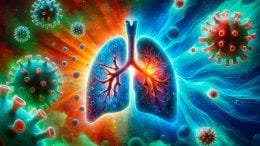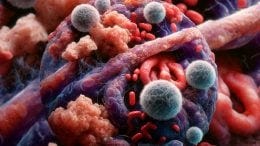Unraveling the Rapid Aging Phenomenon Linked to Early-Onset Cancers
Written on
Chapter 1: Understanding Early-Onset Cancers
In recent years, the rise in early-onset cancers among younger individuals has become a significant concern for the medical community. Traditionally viewed as illnesses that predominantly affect older adults, cancers such as breast, colorectal, and prostate cancer are now being diagnosed with increasing frequency in those under 50. A puzzling aspect of these early cases is the observable acceleration of aging processes within the affected tissues. Grasping the link between rapid aging and early-onset cancers is essential for devising effective prevention and treatment strategies. This article investigates the complex relationships between accelerated aging and the emergence of cancer in younger populations.
The connection between age and cancer has long been established as a critical risk factor. As cells age, they accumulate genetic mutations, alter gene expression, and experience metabolic changes, all of which heighten the risk of cancer. Aging also corresponds with a diminished capacity for the body to repair damaged DNA and maintain cellular balance, further increasing susceptibility to cancer development.
However, the rise of early-onset cancers challenges established beliefs about the aging-cancer relationship. Although the mechanisms driving these cancers are not fully understood, growing evidence indicates that accelerated aging processes within the affected tissues are crucial.
Section 1.1: The Aging-Cancer Link
Researchers have pinpointed several molecular pathways that connect rapid aging with the onset of early cancers. A significant pathway involves telomere dysfunction. Telomeres, which are protective caps at the ends of chromosomes, shorten with each cell division, serving as a biological clock for cellular aging. In numerous cancers, particularly those found in younger individuals, telomeres are shortened prematurely due to heightened cellular proliferation and reduced activity of telomerase, the enzyme that maintains telomere length. This early telomere shortening not only speeds up cellular aging but also leads to genomic instability, a common characteristic of cancer.

Section 1.2: Inflammation's Role in Accelerated Aging
Chronic inflammation is another critical factor contributing to rapid aging in early-onset cancers. Inflammation can act as a double-edged sword in cancer progression, having the potential to either promote or inhibit tumor growth, depending on the context. In the case of early-onset cancers, persistent inflammation within the tumor microenvironment accelerates aging processes by causing DNA damage, oxidative stress, and cellular senescence. Furthermore, inflammatory cytokines released by immune cells can encourage cancer cell growth and survival, thus accelerating tumor development.
Chapter 2: Implications for Cancer Prevention and Treatment
The acknowledgment of accelerated aging as a key factor in early-onset cancers carries significant implications for prevention and treatment strategies. Traditional cancer risk factors, such as smoking, obesity, and lack of physical activity, are now compounded by the adverse effects of accelerated aging on cellular health. As a result, interventions aimed at reducing aging processes may prove beneficial in preventing early-onset cancers.
Lifestyle changes—such as a nutritious diet, regular physical activity, and effective stress management—have been found to mitigate aging-related changes at the cellular level, thereby lowering cancer risk. Additionally, pharmacological agents targeting specific aging pathways, like telomerase activators and mTOR inhibitors, are under investigation as potential treatments for early-onset cancers.
Advancements in precision medicine have facilitated the identification of molecular signatures associated with accelerated aging in cancer cells, paving the way for tailored treatment approaches. By focusing on the aging processes that drive tumor growth, healthcare professionals can customize therapies for individual patients, enhancing effectiveness while reducing side effects.

The rapid aging phenomenon linked to early-onset cancers illustrates a complex interaction of genetic, environmental, and lifestyle factors. By exploring the molecular mechanisms that connect accelerated aging with cancer development, researchers are uncovering valuable insights that could lead to innovative prevention and treatment strategies. Ultimately, addressing the intertwined challenges of aging and cancer requires a comprehensive approach that includes both public health initiatives and advanced biomedical research. As our comprehension of the aging-cancer relationship deepens, so too will our ability to confront these challenging diseases and enhance the healthspan of future generations.
This video explores how adults are experiencing accelerated aging and an increased risk for early-onset cancers based on recent studies.
Experts discuss the alarming trend of cancer surging in young people and the overlooked factors contributing to this crisis.